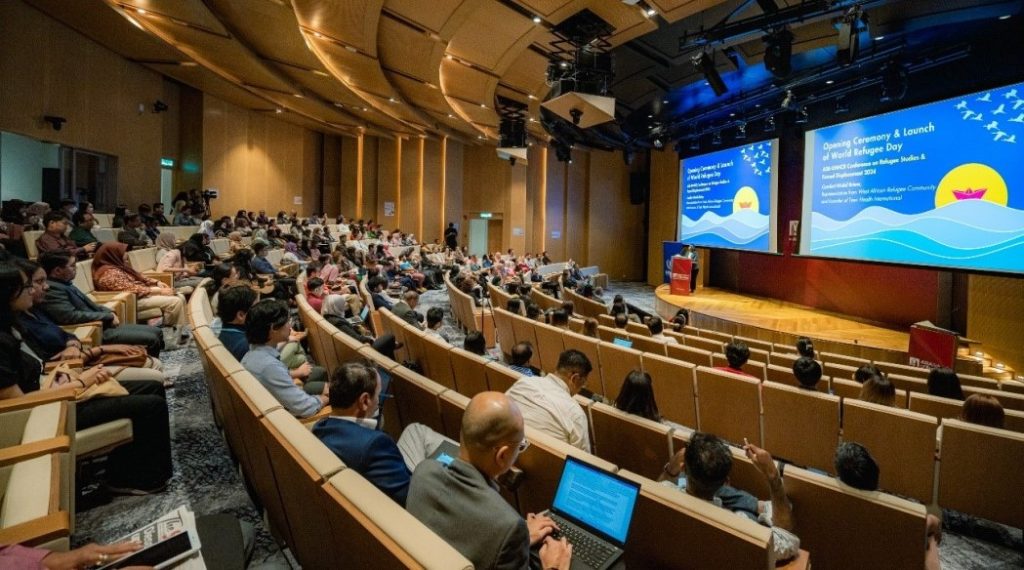On 12 and 13 June 2024, the ASEAN Research Center (ARC) at the Asia School of Business (ASB) held its two-day ASB-UNHCR Conference on Refugee Studies and Forced Displacement 2024. This annual conference, hosted in collaboration with UNHCR, the UN Refugee Agency, is dedicated to presenting and expanding the availability of academic literature on refugee studies and forced displacement. This year’s conference featured a special focus on bilateral learnings of refugee contexts between Brazil and Malaysia, facilitated through a special knowledge exchange with the Embassy of Brazil in Kuala Lumpur.
“We are proud to welcome everyone here to the fourth iteration of this event. As academics, it is incumbent upon us to fill in the existing gaps in knowledge around these critical social issues,” said Prof. Sanjay Sarma, the Chief Executive Officer, President, and Dean of the ASB. His welcome address to the audience of approximately 200 individuals in the Khazanah Auditorium at the Asia School of Business concluded with a brief moment of silence in recognition of the ongoing human rights crises leading to forced displacement around the world, from the Middle East to Sudan.
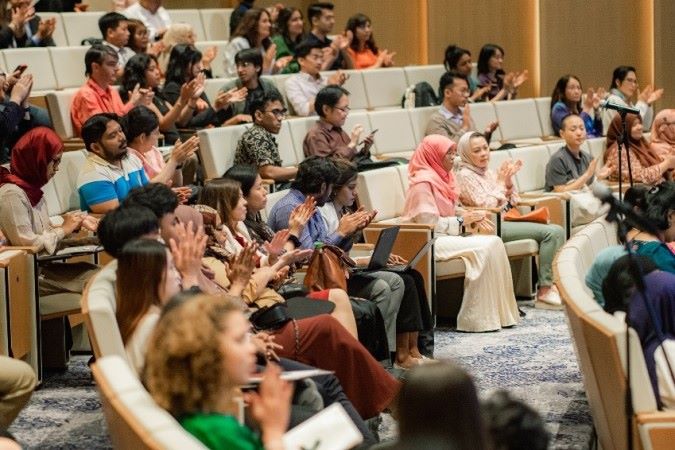
The conference was attended by a international network of academics, policymakers, researchers, civil society organisations, and members of the refugee community to discuss critical developments in refugee rights, and to share their knowledge about existing mechanisms available to improving the lives of refugees on a global scale.
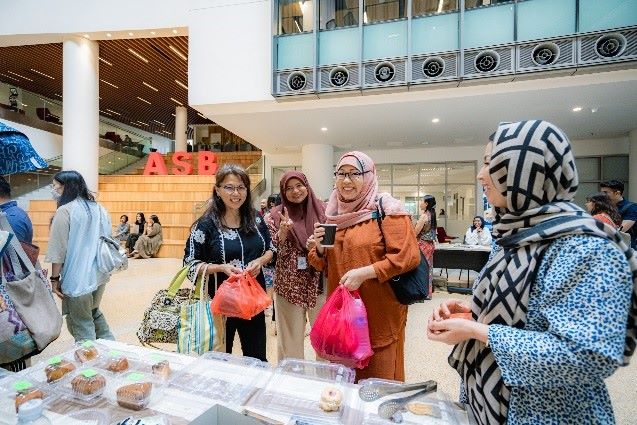
Across both days, there will be research presentations from ten academics, including representation from the United States, Bangkok, Singapore, and Brunei Darussalam. Each day of the conference will conclude with a walkthrough poster presentation from 17 contributing researchers, and a bazaar featuring the work of 20 refugee entrepreneurs selling handmade crafts and food products.
This year’s conference received special support from the Brazilian Embassy, who facilitated two special learning sessions on their innovative approach to refugee policy.
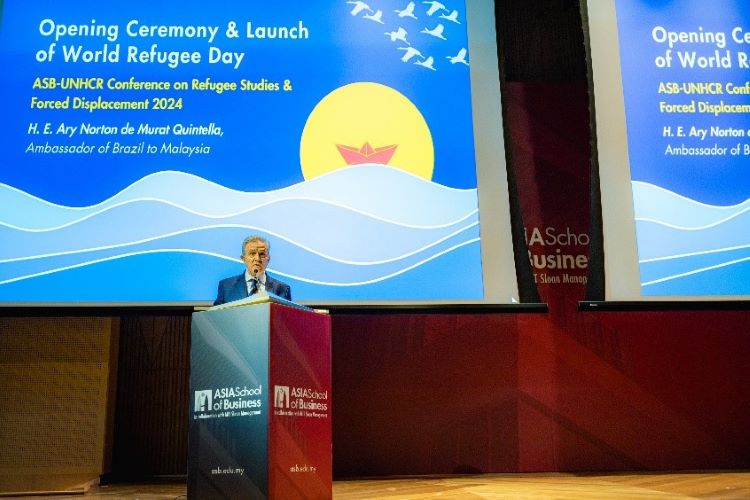
“While refugees are often forced to leave their possessions behind, their creativity, skills, and qualifications stay with them,” said Mr. Thomas Albrecht, the UNHCR Representative in Malaysia, stressing the importance of refugee rights. “Being a refugee is a circumstance – it is not who a person is. … We have seen countless examples here in Malaysia itself of refugees able to use their talents and passions to not only uplift their lives, but whole communities.”
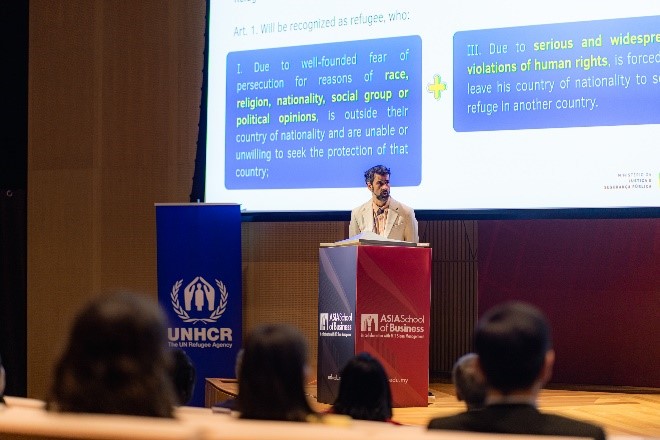
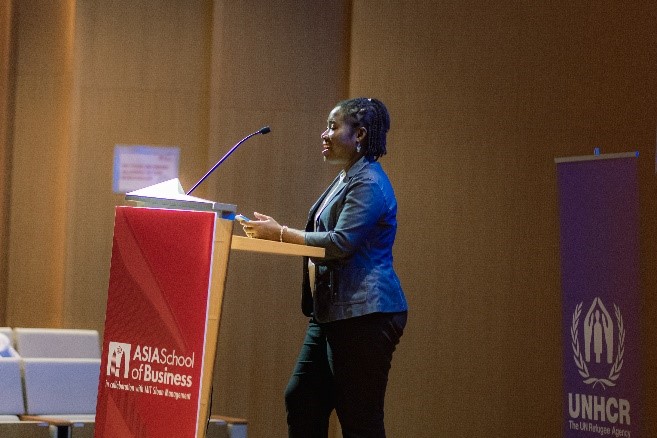
In concluding the proceedings on the first day, ARC’s Faculty Director, Prof. Melati Nungsari, reminded the audience of the importance of academic interventions in resolving social change.
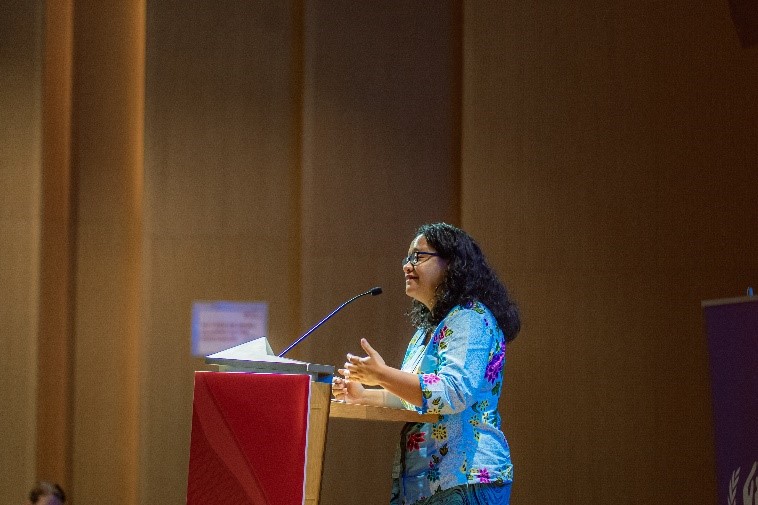
She said, “New forms of media, social and otherwise, provide us with unprecedented access to the realities of people facing forced displacement and human rights violations worldwide. Despite the negative perceptions that many Malaysians have about refugees, the findings of the research show that it is possible for these attitudes to change for the better. Events like these serve as spaces for reflection and collaboration, through which academics and the public alike can arrive at new approaches and ways of thinking.”. Bringing together researchers from different countries and various interests, the first day of the conference featured research presentation sessions built around the theme of Intervention Mechanisms.
Dr. Tan Sok Teng of the National University of Singapore (NUS) presented her work researching the impact of social capital on the healthcare services available to Rohingya refugees in Malaysia. From the Refugee Emergency Fund (REF), Dr. Norliza Nordeen used the work done by REF to highlight many of the financial challenges faced by refugees when accessing healthcare. Lastly Dr. Melati Nungsari, Faculty Director of the ARC presented her own research on stereotypes from the general public to understand Malaysian perceptions of refugees.
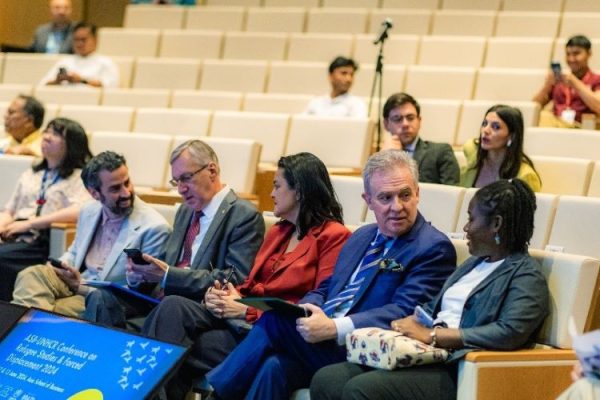
On the second day of the conference, there were further presentation sessions themed around Policy Implementations and Social Attitudes. The session on policy implementations showcased Dr. Samina Khan’s (University Kebangsaan Malaysia) research on how climate change impacts refugees, Dr. Mary Rose Geraldine A. Sarausad’s (Asian Institute of Technology) analysis of Thailand’s national screening mechanism, and an overview of the Bangkok Principles by Dr. Lily Song (Otago University). From a social attitudes perspective, Dr. Kimberley Kong (Universiti Sains Malaysia) presented her research about the early childhood education of refugees in Malaysia, and Dr. AKM Ahsan Ullah (University of Brunei Darussalam) explored questions around the international response to refugees from Gaza.
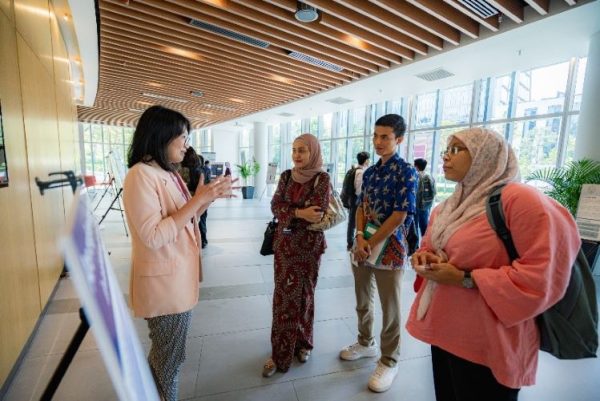
The two-day conference came to an end with a film screening and panel discussion featuring independent filmmaker Laura Low, refugee representative Asiya Arian, and Prof. Melati Nungsari. Their insightful reflections about how mass media can affect our perceptions of refugees brought a human touch to the academic discussions, especially when accompanied by a screening of “Still in Motion,” a short film by Laura Low that explores themes of human resilience, faith and survival from the perspective of two Rohingya refugees.
The ASB and ARC are most grateful to all attendees, researchers, and partners for their invaluable contributions to this meaningful event as yet another step towards developing our collective understanding of the challenges faced by refugees and forcibly displaced persons. We extend a special thanks to the diplomatic community in attendance, including the Ambassadors of Brazil, Chile, Uruguay, Spain, and Venezuela.
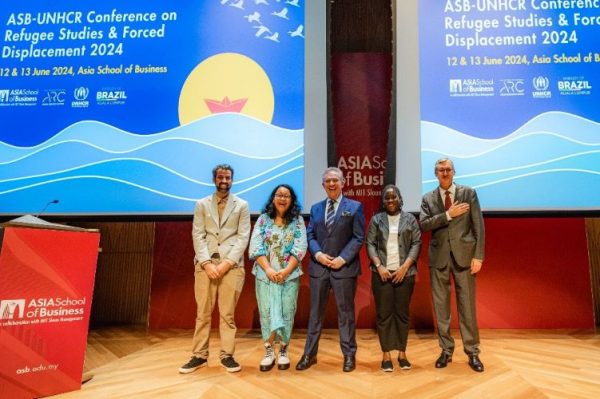
ENDS





